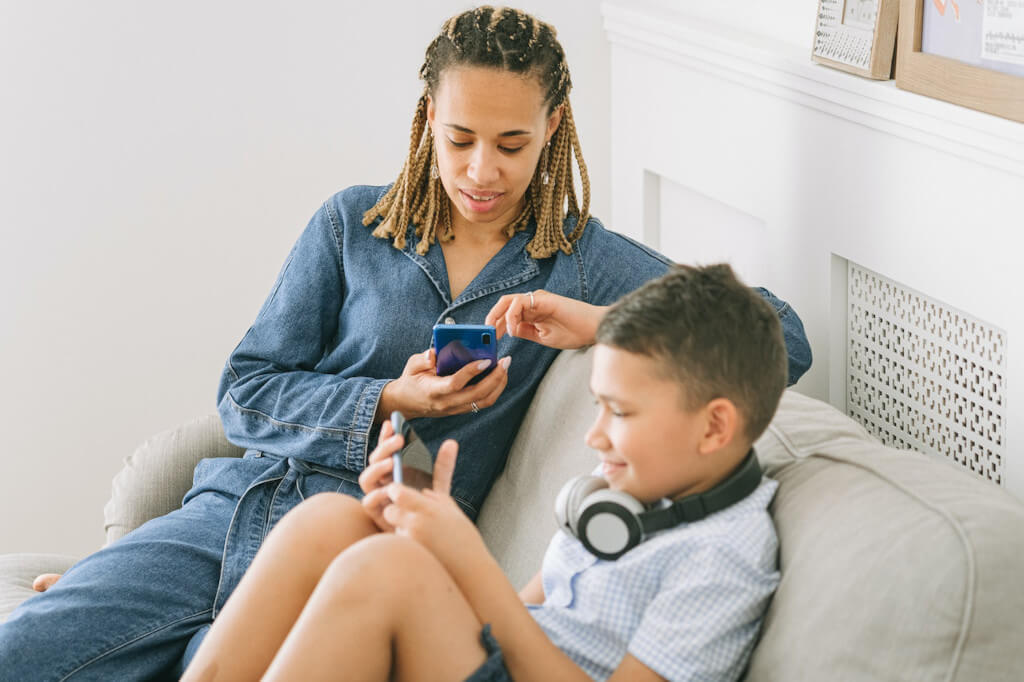A recent study ought to be helpful for parents who are concerned about the appropriate age to purchase a cellphone for their children. If you’re a business owner who’s had trouble sleeping over the question of when to give your children their first cell phone, you’re not alone in your predicament.
Even the pioneers who contributed to the development of the technology were concerned about how it would affect their children. It is well known that Steve Jobs prohibited his children from using electronic devices. In a similar vein, Bill Gates imposed stringent restrictions on his children’s use of technology.
That being the case, you have every reason to be concerned about the appropriate time to cave into the whimpering and pleading of your children and buy them a cell phone, right? Not so, finds the most recent study to come out of Stanford University’s Medical School.
The findings of the latest study, which compared the physical and mental well-being as well as the academic performance of children who got their first phones at varying ages, concluded that there were no significant differences.
The Most Recent Studies on the Optimal Age to Give One’s Child a Mobile Phone
There has been a significant amount of research conducted on the topic of how significantly screens are affecting the well-being of our children, not the least of which is due to the numerous statistics that show an increasing number of adolescents are trying to cope with anxiousness, depression, and exclusion.
Concerned Parents Are Looking for Explanations as to Why This is Happening
However, the evidence against children using screens is, at best, inconclusive at this point. The research results range from those that are extensively reassuring to those that are on the verge of being catastrophic. As a result of the fact that scientists are still debating the methodologies and findings of numerous of these studies, it is highly unlikely that a single finding will definitively resolve the controversy.
However, the antsiest parents should at least take a moment to reflect on whether or not they are perhaps overthinking the situation in light of the most recent findings to come out of Stanford Medical School. The detailed study, which was published not too long ago in Child Development, followed 250 children from low-income families over five years to determine whether or not their well-being and health took a discernible turn for the worse when they got their first phone.
In addition to having the children wear a gadget that surveilled their sleep, the researchers conducted periodic interviews with the children’s parents in which they inquired about the children’s mental health, bedtimes, and academic performance. What kinds of changes did the team observe after they started closely monitoring the children after they gave them cell phones? Nyet, nada, nothing.
According to the study’s lead author, Xiaoran Sun, “We discovered that regardless if or not the kids in the study had a cell phone, as well as when they acquired their first cell phone, there did not appear to be constructive connections to their well-being and adjustment outcomes.” It does not appear that there is a hard-and-fast rule that states one must wait until grade 8 or until a specific age.
You’ve Got This One Down Pat
It made no difference whether a person got their first phone earlier or later than the average age of 11 years, which is the age at which most people get their first phone.
What should apprehensive parents take away from this information? It isn’t that any child can use a phone at any age; rather, it’s that you should have faith in the judgment you’ve developed as a parent.
Thomas Robinson, one of the other co-authors of the study, commented that “one potential explanation for the findings would be that parents are doing a great job listening to their decisions to grant their kids cell phones to the needs of their child and family.” These findings ought to be interpreted as giving parents the authority to act in a manner that they feel is appropriate for their own families.
It is probably not a good idea to hand over an unsupervised smartphone to a child who is addicted to the video game Fortnite and is having trouble completing his schoolwork. However, this is not due to any issue that is inherent to the development of children or mobile phones. The reason for this is that a phone at that age and with those responsibilities would not be beneficial to the child in question. There are no ironclad rules. It boils down to parental instinct and good old-fashioned common sense.
It’s possible that innovative business leaders like Jobs and Gates were too careful with technological advances. The more we find out about children and electronic devices, the clearer the picture is starting to become. While it is true that the combined effect can be troublesome for particular people at particular times, there is no reason for mom and dad to lose sleep over the matter.
It is more important that you listen to your instincts regarding when to give your child a phone rather than blindly following any recommendations. You should probably put more faith in yourself regarding this particular matter.








